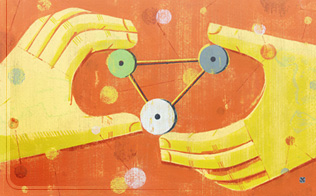Project news
The DIY-biology community, as a stakeholder that has already addressed many of the underlying issues, should take part in a robust public dialogue about the use of CRISPR–Cas9 and how governance models can ensure safe, responsible research.
The National Academies is convening a new study to explore forthcoming biotechnology products and the capabilities needed to evaluate these products. Synthetic Biology Project Director David Rejeski has been appointed to the study’s expert committee.
Last month, Eleonore Pauwels of the Synthetic Biology Project participated in a panel organized by New America Foundation and Slate Magazine that explored how new gene technologies could help fight the emerging Zika Virus threat. An archived video of the panel can be viewed here.
Join the Environmental Law Institute on 2/18/16 at 2 pm EST for a webinar on gene editing and invasive speices, featuring Fred Gould of North Carolina State University, Karl Campbell of Island Conservation and Todd Kuiken of the Synthetic Biology Project. Register here.
With all eyes on the United Nation climate talks in Paris, one synthetic biology-based solution to climate change could be sitting in a nearby pond.
In a new documnentary, the Synthetic Biology Project explores the growth of do-it-yourself biology (DIYbio) as seen through the BUGSS community lab in Baltimore, Maryland.
The Synthetic Biology Project supports White House plans to modernize the Coordinated Framework for the Regulation of Biotechnology to address emerging technologies like synthetic biology.
Respondents to national online poll from the Synthetic Biology Project are uncertain about potential of gene-editing technology, but a majority support a ban on human-based research.
The Wilson Center’s Synthetic Biology Project today has developed a first-of-its-kind inventory to track products and applications using the emerging technology of synthetic biology.
In a new op-ed, Eleonore Pauwels of the Synthetic Biology Projects and Jim Dratwa explore the limits of what DNA can tell us.
David Shifrin of the Public Library of Science (PLOS) speaks with David Rejeski about the importance of properly communicating synthetic biology concepts.
A cross-disciplinary team is calling for public discussion about a potential new way to solve longstanding global ecological problems by using an emerging technology called “gene drives.”
Environmental scientists and synthetic biologists have for the first time developed a set of key research areas to study the potential ecological impacts of synthetic biology.
